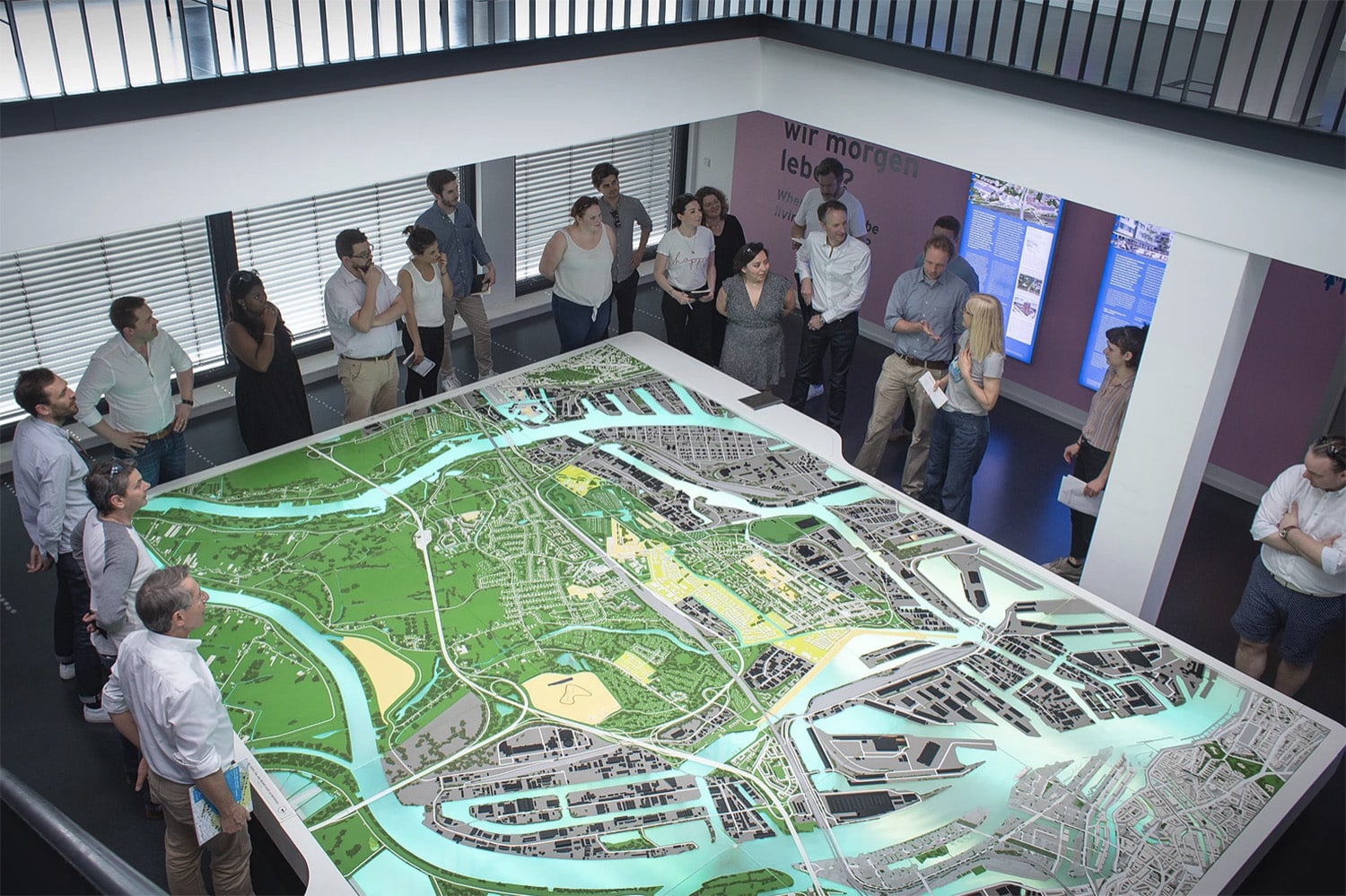European regeneration exchange programme – Hamburg
EUROPEAN REGENERATION EXCHANGE PROGRAMME - HAMBURG

We believe that the best solutions are yet to be discovered and the best outcomes yet to be delivered. That is why we prepare organisations for change and help them implement it. We do this through an intimate understanding of their business, a relentless focus on delivery, the use of techniques that challenge the status quo and bridge traditional disciplines. We provide a range of services to public and private organisations including project and programme management, property consultancy, change management and strategy development and strategic advice. Contact us to discuss a project.
We believe that collaboration is the key to achieving the best possible results in any area of work, and especially in urban regeneration. Following this ethos, we started the European Regeneration Exchange Programme to create an international knowledge-sharing network to promote best practice in regeneration.
Hamburg was chosen as our destination in 2018 because of its success in implementing comprehensive, large-scale, district-wide regeneration; firstly in HafenCity, and more recently in the Wilhemsburg area.

In Hafencity, a shift in the location of port activities left large parts of the inner-city port fringes unused. A municipally-owned company began acquiring these sites and a development framework established a set of development principles and land uses to lay the foundation for a masterplan competition and its subsequent development. This foundation would form sound urban design principles of a mix of uses including activity at ground floor and people-focused connectivity and public realm.
The ongoing development on Wilhelmsburg was driven by bottom-up action, with a call from residents to transform the area through improved flood-resilient homes, re-locating industrial activity, and improving transport infrastructure. A publicly-owned development company – IBA_Hamburg – was formed to take the area’s redevelopment forward, and ran a competitive process involving various stakeholders to develop a plan on which subsequent more detailed planning and then development took place. The Inner Circle team were hosted by IBA Hamburg where they talked us through the process and methodology which has been used in Hamburg and other projects across Germany.
The insights we took from our exchange were:
The market alone cannot address the problems in a socially-deprived area, and the city’s response to this in terms of its commitment and scale and type of investment was well considered (and proved to be effective).
City government has an important role throughout the process: establishing a single delivery company with a clear mandate, and a sense of purpose. This enabled the city, through this company, to take a long-term view both on investment decisions relating to transport and infrastructure, and being flexible to the type of development that would emerge over a timescale beyond that which the private sector may have accepted.
Delivering regeneration at this scale and to a very high standard takes a lot of planning. The use of the International Building Exhibition planning methodology; predominantly used in Germany to strategic plan an area over a period of seven years. They started with early feasibility then a competitive, inclusive design process, detailed planning, investment and marketing; with meaningful involvement from residents, public sector agencies, investors and developers at appropriate stages. This was captured in a clear plan with a defined timeline to give clarity and focus to the programme. The creation of the plan was not rushed, but the implementation had a sense of urgency with a commitment to deadlines.
Planning for delivery from the start is key! We recognised that the plan making process seamlessly transitioned into the delivery process through the IBA Hamburg publicly owned organisation
A vision for the city can enable stronger connections. For example, The “Leap across the Elbe” led to regeneration in the southern part of the city, creating stronger connections to the more successful north.
This was the second exchange programme we have run following our trip to Barcelona last year. We are constantly striving to challenge the status quo and the European Regeneration Exchange Programme has helped to create an international knowledge-sharing network so that we promote best practice in regeneration. We look forward to hosting those we met on both trips in London soon and extending our network with practitioners in Barcelona, Hamburg and other cities in the future.


